
Triangle of Thinking, Feeling, and Desires
Commit to Intellectual Virtues: The hallmark of the
strong-sense critical thinker is the embodiment of
and deep commitment to intellectual virtues, or the
development of intellectual character. Yet, the extent to
which anyone lives in accordance with these virtues on a
daily basis is a matter of degree. No one can achieve the
status of ideal thinker, exhibiting these characteristics
at all times. This is why the most advanced thinkers see
themselves as “aspiring critical thinkers” rather than
fully “critical thinkers.”
At the same time, powerful emotions or desires influence our thinking, help or hinder
how well we think in a situation. At any given moment, our minds (that complex of inner
thoughts, feelings and desires) can be under the sway of our native irrationality or our
potential reasonability. When we are ruled by our irrational tendencies, we see the
world from a narrow self-serving perspective. We are not truly concerned with how our
behavior affects others. We are fundamentally concerned with getting what we want
and/or with validating our beliefs and views.
The key to understanding human thought then, is, to understand its essential duality: its capacity for irrationality (being trapped in egocentric and/or sociocentric thought with its attendant self-deception, self-delusion, rationalization, and so forth)) and its capacity for reasonability (freeing itself from self-delusion, myth, and illusion). Though thinking, feeling and wanting are, in principle, equally important, it is only through thinking that we take command of our minds. It is through thinking that we figure out what is going wrong with our thinking. It is through thinking that we figure out how to deal with destructive emotions. It is through thinking that we change unproductive desires to productive ones. It is fairminded reasonability that frees us from intellectual slavery and conformity. If we understand our mind and its functions, if we face the barriers to our development caused by egocentric and sociocentric thought, if we work upon our mind in a daily regimen, we can take the steps that lead to our empowerment as thinkers.
The key to understanding human thought then, is, to understand its essential duality: its capacity for irrationality (being trapped in egocentric and/or sociocentric thought with its attendant self-deception, self-delusion, rationalization, and so forth)) and its capacity for reasonability (freeing itself from self-delusion, myth, and illusion). Though thinking, feeling and wanting are, in principle, equally important, it is only through thinking that we take command of our minds. It is through thinking that we figure out what is going wrong with our thinking. It is through thinking that we figure out how to deal with destructive emotions. It is through thinking that we change unproductive desires to productive ones. It is fairminded reasonability that frees us from intellectual slavery and conformity. If we understand our mind and its functions, if we face the barriers to our development caused by egocentric and sociocentric thought, if we work upon our mind in a daily regimen, we can take the steps that lead to our empowerment as thinkers.
To learn more about the relationship between thoughts,
feelings and desires, read
The Thinker's Guide to the Human Mind
, pp. 4-10.
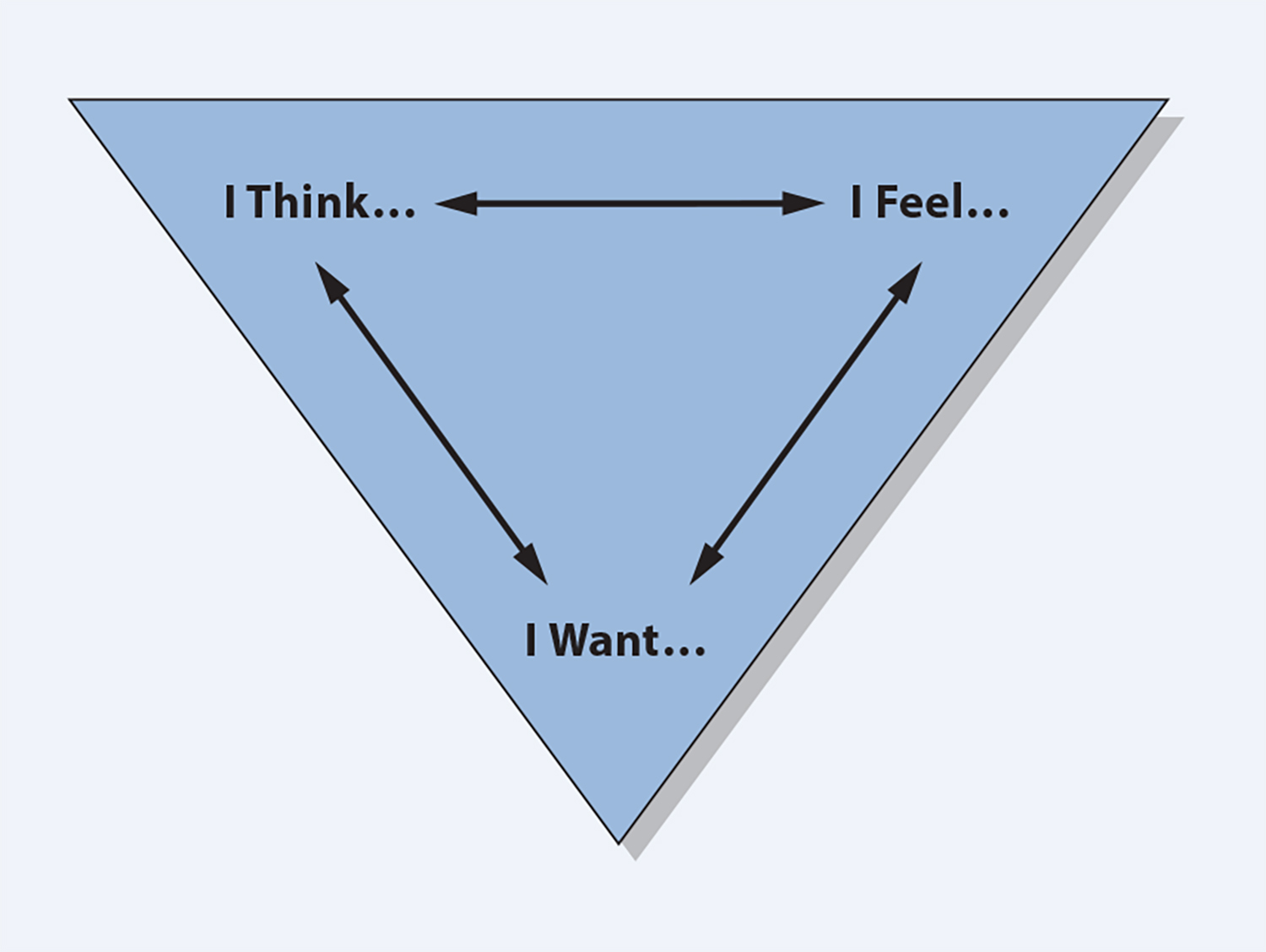
There is an intimate, dynamic
interrelation between thinking,
feeling, and wanting. Each is
continually influencing the
other two.
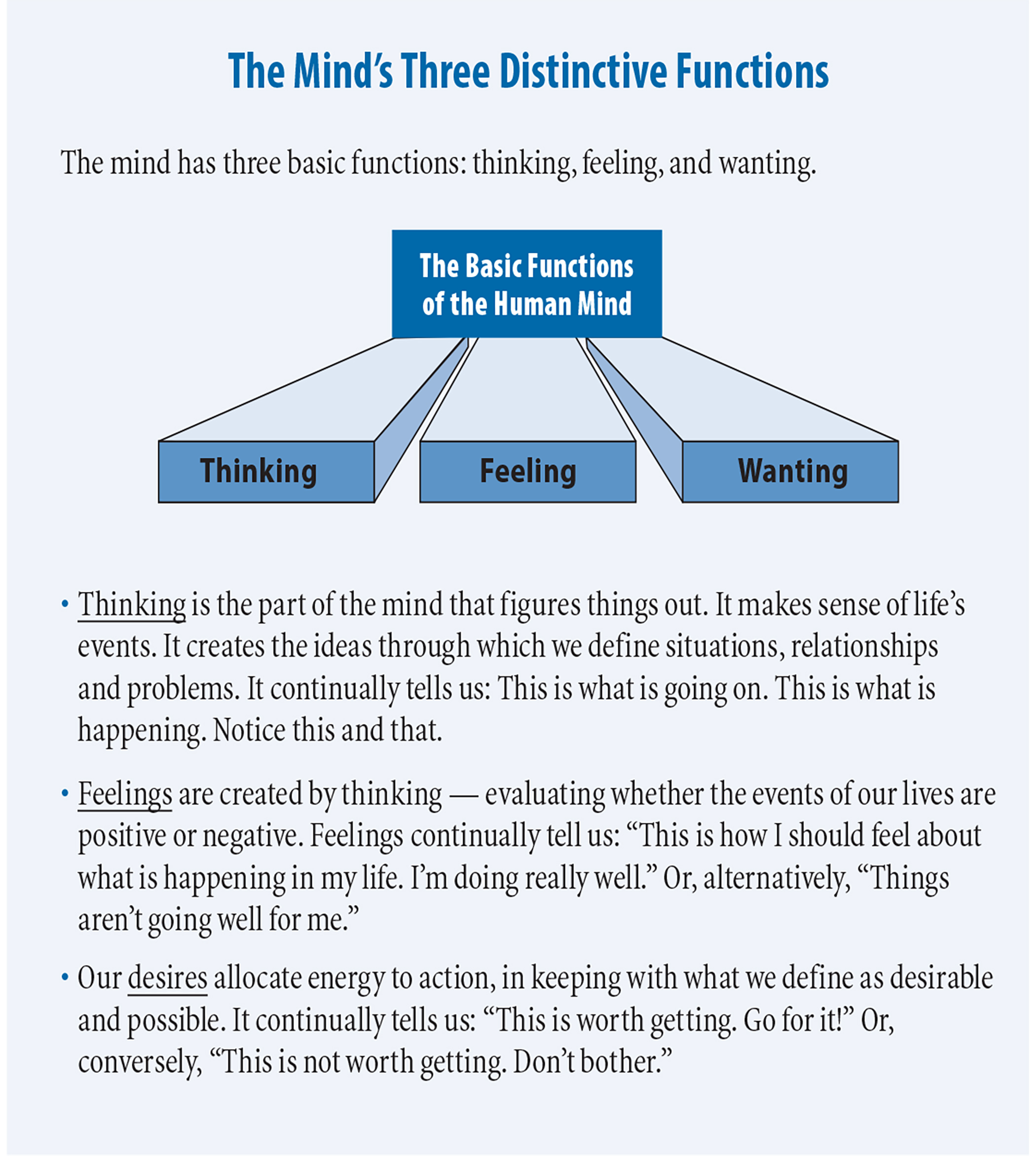
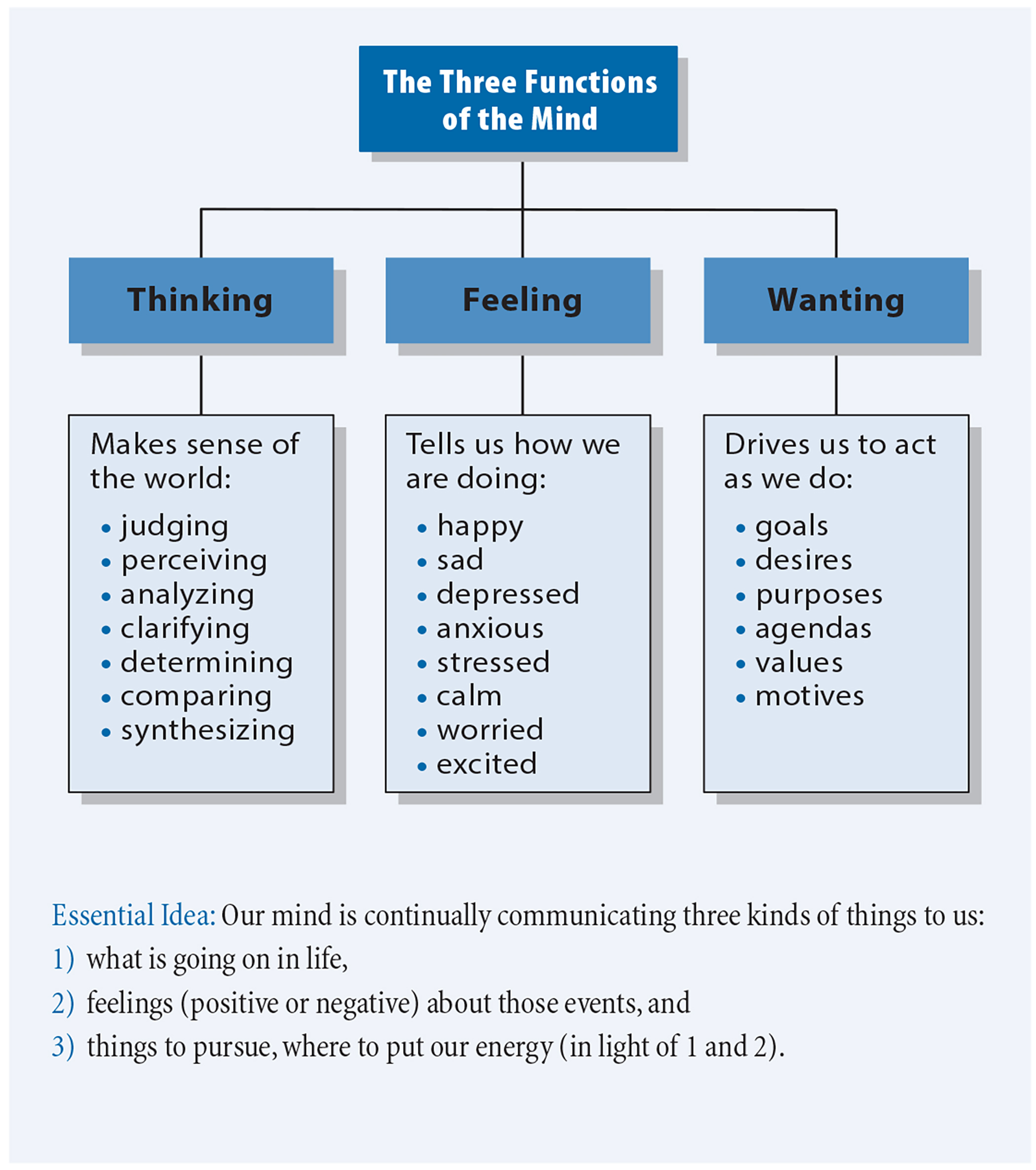


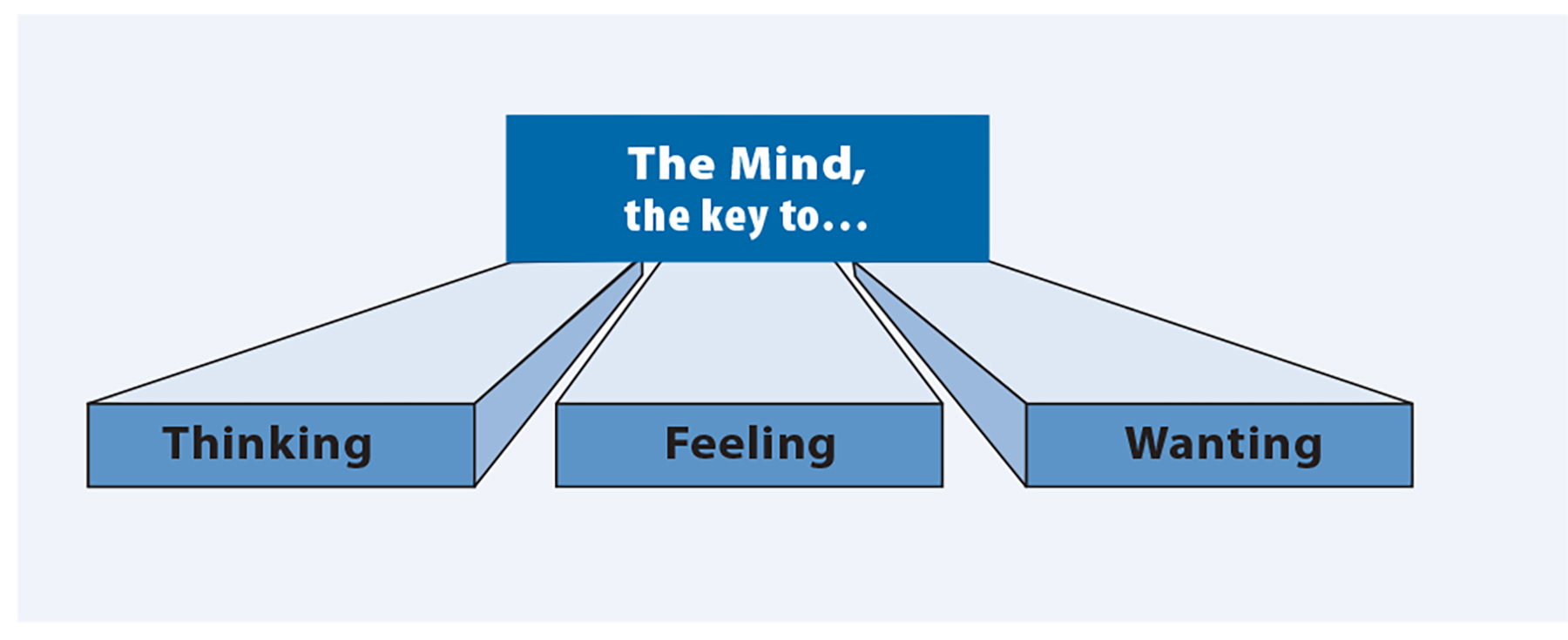
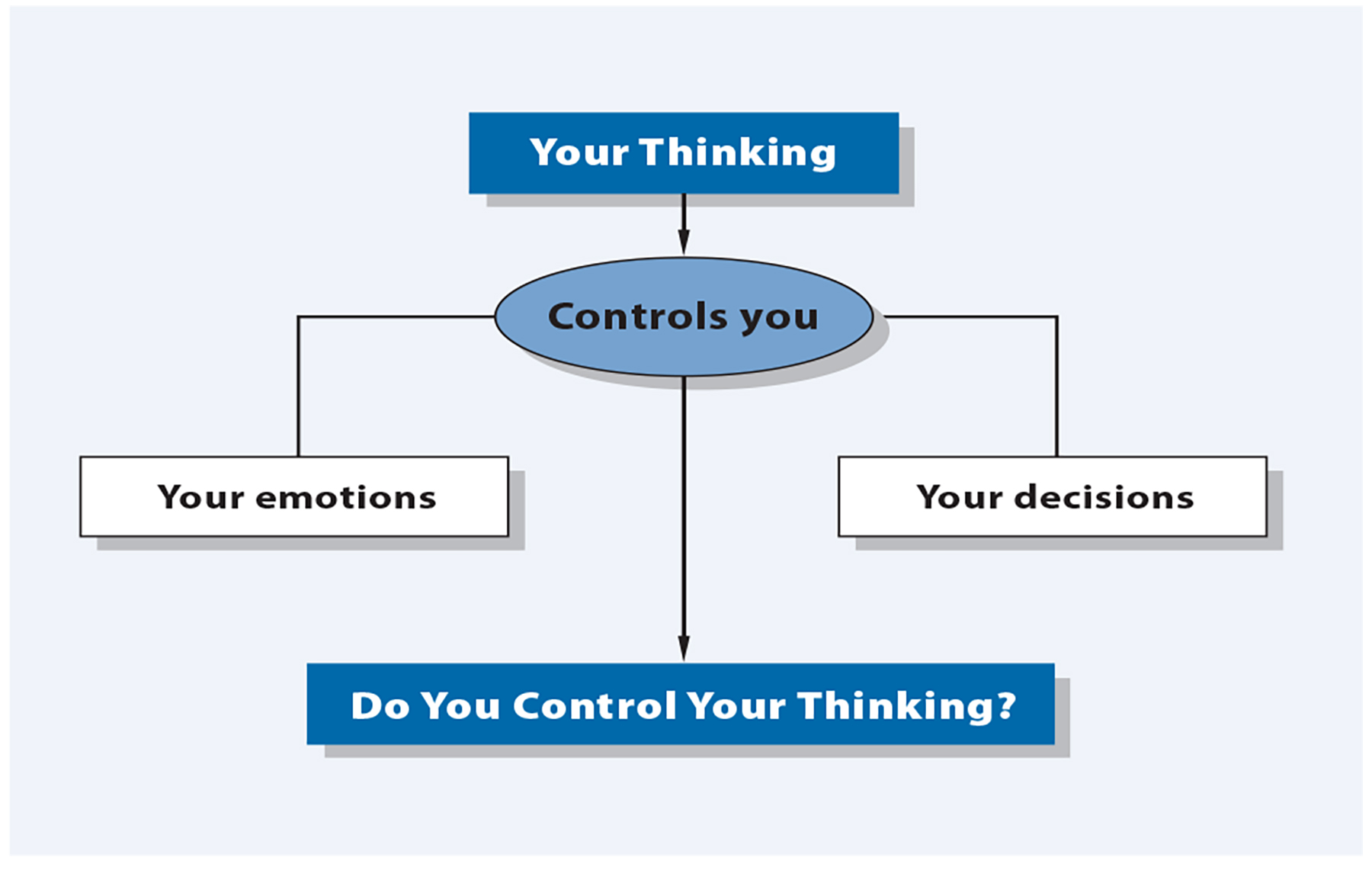
Activities for Triangle of Thinking, Feelings, and Emotions:
- Understanding the Relationships Between Thinking, Feeling, and Emotions
- Analyze Your Primary Feeling State(s) About Your Work
- Analyze Your Primary Feeling State(s) About Your Home Life
- Analyze Your Primary Feeling State(s) About Your Physical Health and Well-Being
- Analyze Your Primary Feeling State(s) About Your Emotional Well-Being
- Analyze Your Primary Feeling State(s) About Your Significant Other and Your Intimate Relationship
- Internalizing the Three Functions of the Mind Through Your Own Examples
Top ▲ Image by ÁWá [GFDL (http://www.gnu.org/copyleft/fdl.html)]